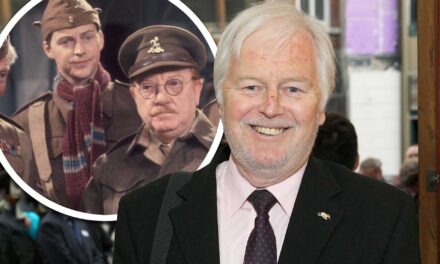Albert Finney was an esteemed British actor, best known for his dynamic performances on stage and screen. He was born on May 9, 1936, in Salford, Greater Manchester, England. Finney grew up in a working-class family, and his father was a bookmaker. He attended Tootal Drive Primary School and later went on to attend Salford Grammar School.
During his early years, Finney had a deep interest in performing arts. He participated in school plays and discovered his passion for acting. In the 1950s, he won a scholarship to the Royal Academy of Dramatic Art (RADA) in London and trained under renowned acting coach and director Tony Richardson.
Finney’s career took off in the late 1950s when he became associated with the newly formed “Angry Young Men” movement in British theater. He made his London stage debut in 1958 in the production of “Julius Caesar” and quickly gained recognition for his intense and magnetic stage presence.
In 1960, Finney made his film debut with a memorable performance as Arthur Seaton in “Saturday Night and Sunday Morning.” This role solidified his reputation as a leading figure in the British New Wave cinema movement. He followed this success with another acclaimed performance in “Tom Jones” (1963), for which he earned his first Academy Award nomination for Best Actor.
Throughout his career, Finney displayed his versatility by portraying a wide range of characters in various genres, including musicals, dramas, comedies, and thrillers. Some of his notable film roles include the title character in “Scrooge” (1970), Hercule Poirot in “Murder on the Orient Express” (1974), Daddy Warbucks in “Annie” (1982), and Winston Churchill in “The Gathering Storm” (2002).
Finney also achieved acclaim for his work on stage, appearing in numerous productions with the Royal Shakespeare Company and the National Theatre. His stage performances include the title role in “Hamlet,” Charlie in “The Entertainer,” and many more.
Over the course of his career, Finney received several accolades and honors. He was nominated for five Academy Awards as Best Actor – an exceptional achievement. In addition to his Academy Award nominations, he received several BAFTA Awards, Golden Globe Awards, and numerous other nominations.
Beyond his remarkable acting talent, Finney was known for his dedication to his craft and commitment to the authenticity of his performances. He continually pushed the boundaries of his abilities and sought out challenging roles that allowed him to showcase his range and artistic versatility.
Albert Finney’s impact on contemporary culture cannot be overstated. He was a trailblazer for British actors, helping to establish a new wave of talent and contributing to the renaissance of British cinema in the 1960s and 1970s. Moreover, his stage performances and dedication to his craft inspired countless aspiring actors.
Finney passed away on February 7, 2019, leaving behind a legacy of unforgettable performances and a lasting imprint on the world of film and theater. His remarkable talent and contributions to the arts will forever be remembered and cherished.













